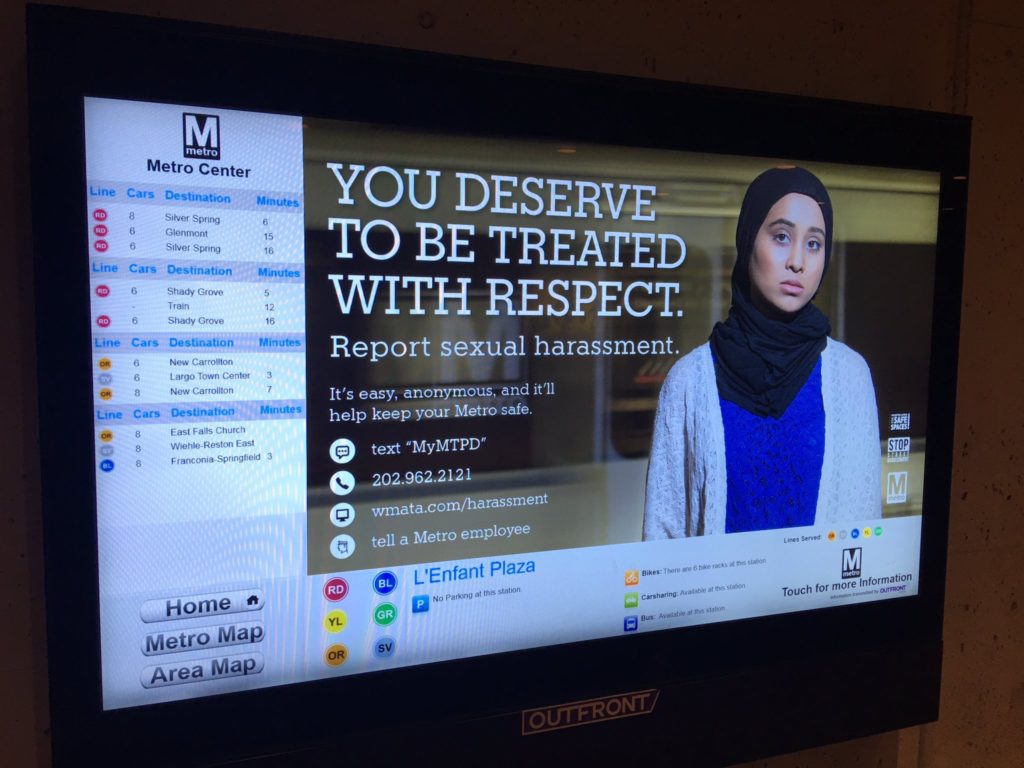THANK YOU to everyone who made our work possible this year! Here are 10 highlights from this year.
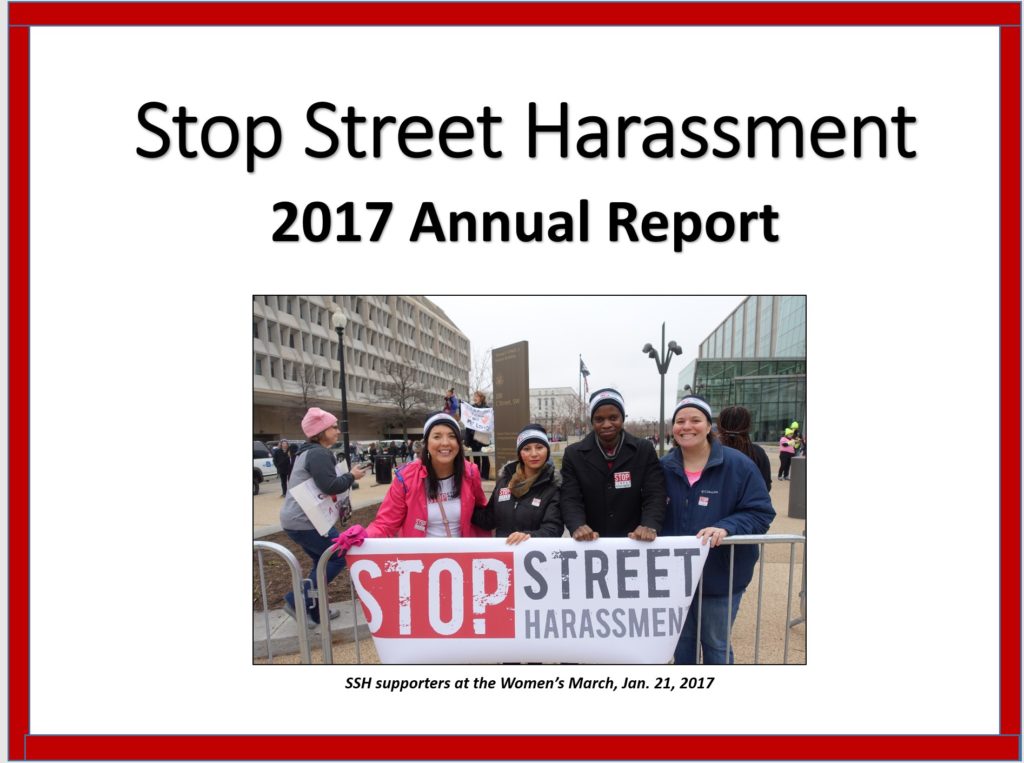 ** You can read more and see photos in our 2017 Annual Report. **
** You can read more and see photos in our 2017 Annual Report. **
1. Oversaw the 7th annual International Anti-Street Harassment Week. Groups in 40 countries and 20 U.S. states and D.C. participated through organizing street demonstrations, flyering, wheatpasting, sidewalk chalking, tweet chats, and workshops.
2. Surpassed year one and began year two of the first-ever national street harassment hotline, run in partnership with the Rape, Abuse & Incest National Network (RAINN).
3. Recruited and worked with two cohorts of nine blog correspondents from eight countries. They each wrote monthly articles about street harassment and/or activism in their communities across their four month term
4. Received around 200 street harassment story submissions to the SSH blog.
5. Nearly a quarter-million people visited the website and there were more than 417,000 page views.
6. Worked for a fifth year on an anti-harassment transit campaign with the Washington Metropolitan Area Transit Authority (WMATA) and Collective Action for Safe Spaces.
7. Began efforts to spearhead a national survey on sexual abuse, to be conducted in January 2018 in partnership with Raliance and GfK. Thank you to all of our donors who are making this possible!
8. Took part in many marches and protests, from the Women’s March in January to other rallies/marches held in support of issues like immigrants’ rights, transgender folks’ rights and Title IX protections and against white supremacy.
9. Spoke at 12 events in CA, DC, MD NH, NY, VA and Mexico City. These events included talks to high school students, college students, community members and global safe cities leaders. Also offered support to several groups for their events.
10. Received $1,500 in funding from the PinPoint Foundation and around $9,000 in donations from individuals.


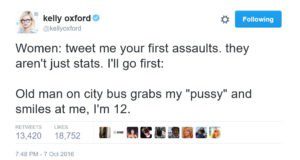 In October after the release of a 2005
In October after the release of a 2005 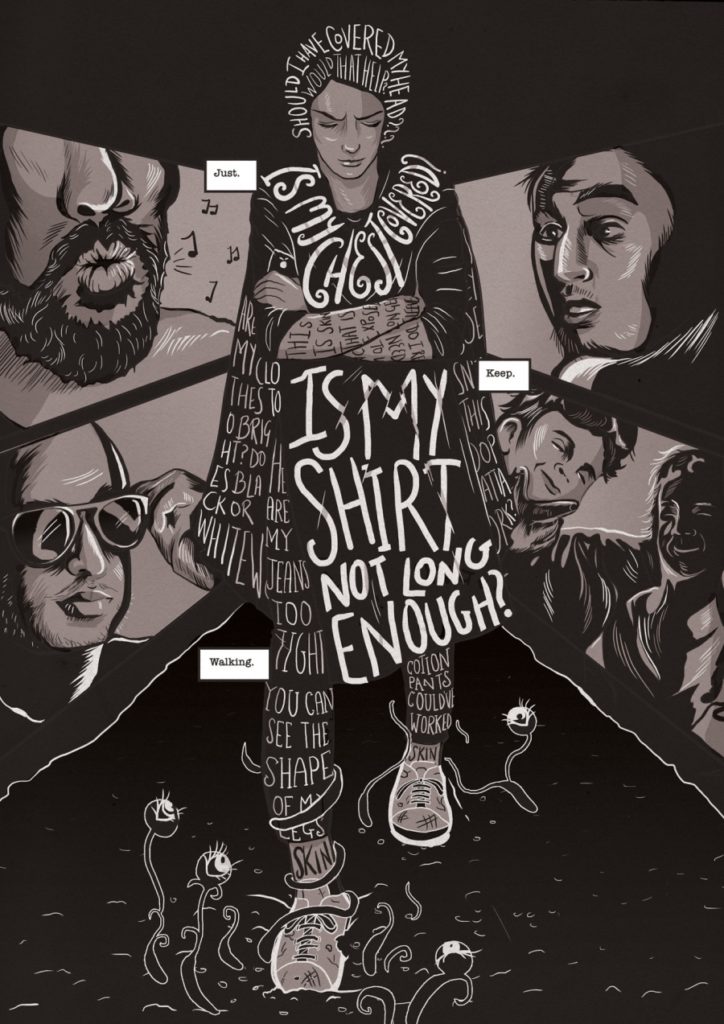
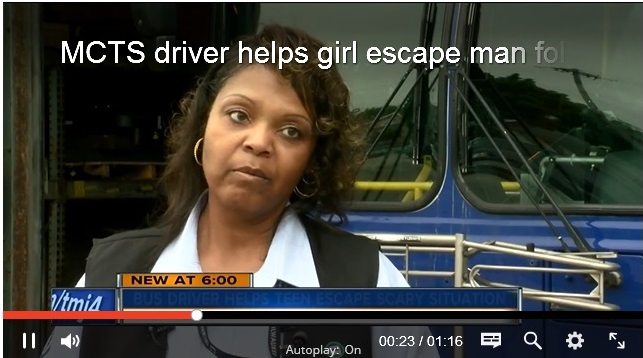
 A man in Florida liked to start talking to women in stores by asking innocent questions and then escalating quickly to inappropriate and sexually graphic remarks and questions. He filmed the women as he did so. After he did it to a woman for a second time in a few years, she recognized him and remembered his strategy and she began
A man in Florida liked to start talking to women in stores by asking innocent questions and then escalating quickly to inappropriate and sexually graphic remarks and questions. He filmed the women as he did so. After he did it to a woman for a second time in a few years, she recognized him and remembered his strategy and she began 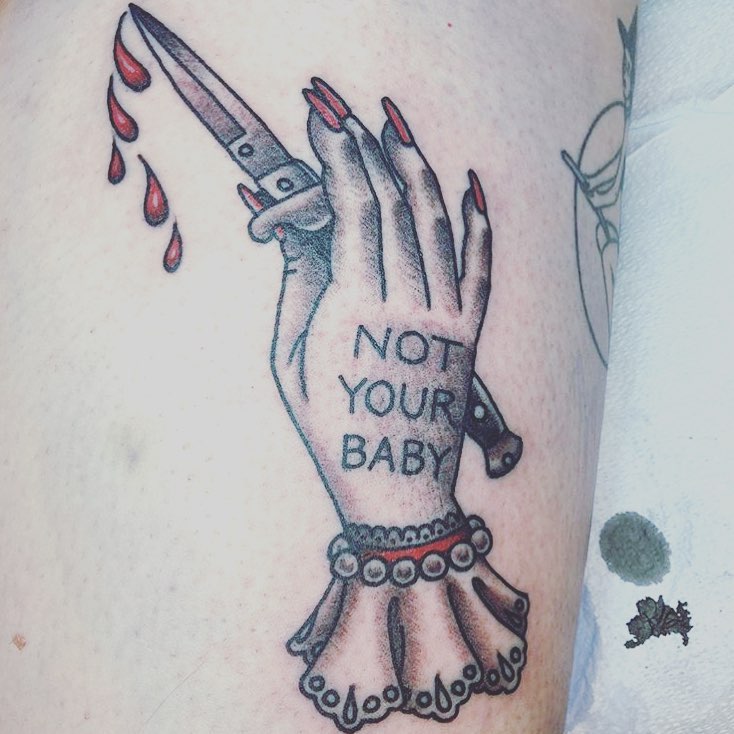
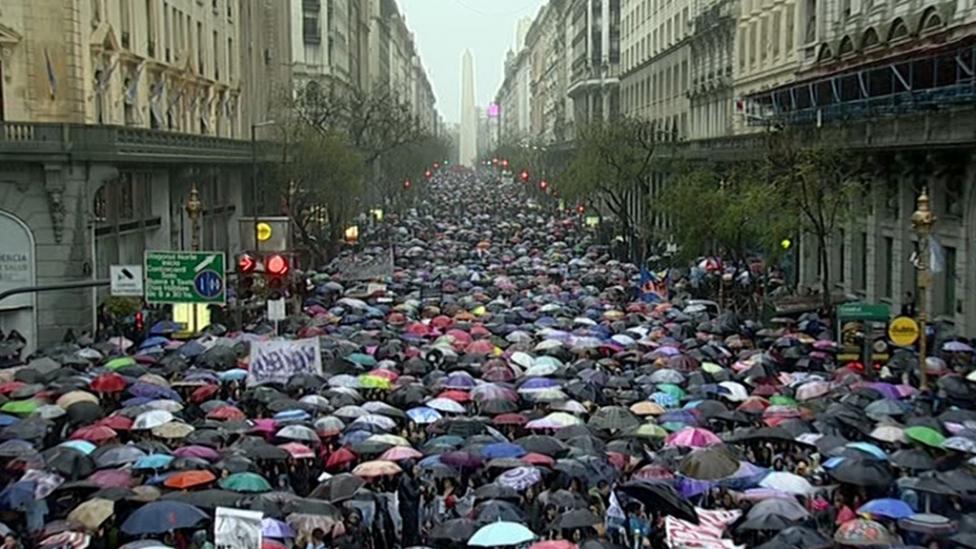
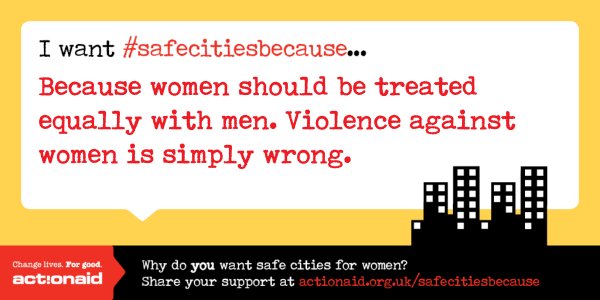 ActionAid mobilized groups in 17 countries on May 20 under the theme
ActionAid mobilized groups in 17 countries on May 20 under the theme 